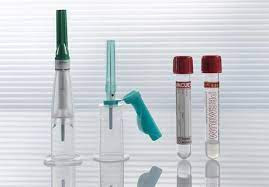 |
Blood Collection Devices
Blood sample collection is a frequently used method for diagnosing and monitoring diseases. Blood samples provide important information about a patient's overall health and reveal more specific conditions and diseases. Blood samples are collected with the help of blood collection devices to measure basic metabolic components, such as sodium, potassium, creatinine, blood urea nitrogen, magnesium, chloride, as well as to measure blood glucose and lipid levels. Thus, with the increasing prevalence of infectious and chronic diseases worldwide, the demand for blood collection devices is also increasing.
According to the Centers for Disease Control and Prevention (CDC), chronic diseases such as heart disease, cancer, and diabetes are the leading causes of death and disability in the United States. Six in ten Americans live with at least one chronic disease, like heart disease and stroke, cancer, or diabetes. This in turn is expected to increase the demand for blood collection devices in this region. Blood collection devices interact with blood to alter blood composition, serum, or plasma fractions and in some cases adversely affect laboratory tests. Venipuncture sampling, arterial sampling, and fingerstick sampling are three popular methods of blood collection.
While, the blood shipper kit is designed to protect blood collection devices, ensure specimen integrity, and aid in the proper collection while having all of the supplies needed in one package.
Comments
Post a Comment